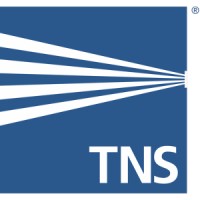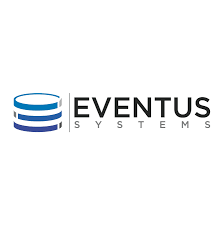In other news, BlackRock blesses Bitcoin, TNS connects to BIST, and Eventus partners with the AirCarbon Exchange.
CFTC Amends & Ends LIBOR Usage
 The Commodity Futures Trading Commission (CFTC) has issued a final rule ending the requirement that interest rate swaps reference the London Interbank Offered Rate (LIBOR) in order to complete the clearing process — another milestone marking the end of the scandal-ridden LIBOR.
The Commodity Futures Trading Commission (CFTC) has issued a final rule ending the requirement that interest rate swaps reference the London Interbank Offered Rate (LIBOR) in order to complete the clearing process — another milestone marking the end of the scandal-ridden LIBOR.
The final rule modifies the CFTC’s “interest rate swap clearing requirement,” according to the regulator. The final rule replaces LIBOR and other reference rates “with requirements to clear interest rate swaps referencing overnight, nearly risk-free reference rates.”
In addition, the final rule “updates the swaps required to be submitted for clearing to a derivatives clearing organization (DCO) or an exempt DCO and the compliance dates for such swaps,” according to the CFTC.
The final rule changes CFTC Regulation 50.4(a) as follows:
- The new rule “removes the requirement to clear swaps referencing British pound (GBP) LIBOR, Swiss franc (CHF) LIBOR, Japanese yen (JPY) LIBOR, and euro (EUR) Euro Overnight Index Average (EONIA) in each of the fixed-to-floating swap, basis swap, forward rate agreement (FRA), and overnight index swap (OIS) classes, as applicable;”
- The new rule “adds a requirement to clear OIS referencing CHF Swiss Average Rate Overnight (SARON) (with a stated termination date range of seven days to 30 years), JPY Tokyo Overnight Average rate (TONA) (seven days to 30 years), and EUR Euro Short-Term Rate (€STR) (seven days to three years);” and
- The new rule “extends the stated termination date range for GBP Sterling Overnight Index Average (SONIA) OIS required to be cleared to include seven days to 50 years.
The CFTC has noted some key dates for LIBOR replacement:
Effective October 31, 2022: The final rule has “a requirement to clear OIS referencing U.S. dollar (USD) Secured Overnight Financing Rate (SOFR) (seven days to 50 years) and Singapore dollar (SGD) Singapore Overnight Rate Average (SORA) (seven days to 10 years); and
Effective July 1, 2023: “Removes the requirement to clear interest rate swaps referencing USD LIBOR and SGD Swap Offer Rate (SOR-VWAP) in each of the fixed-to-floating swap, basis swap, and FRA classes, as applicable.”
“The final rule promotes financial stability and mitigates systemic risk,” says Rostin Behnam, CFTC chairman, in a prepared statement. “As we focus our collective efforts on the fast approaching end of LIBOR, this rule provides legal certainty and regulatory transparency for DCOs, market participants, and our fellow international authorities. This is essential to ensure cross-border harmonization in the interest rate swaps market.”
BlackRock Launches a Bitcoin Private Trust
 The world’s largest asset manager BlackRock has launched a Bitcoin private trust despite the fact that cryptocurrencies are in a self-described winter.
The world’s largest asset manager BlackRock has launched a Bitcoin private trust despite the fact that cryptocurrencies are in a self-described winter.
In its announcement, the firm says that it “is committed to providing clients with access to their choice of investment opportunities and has launched a spot Bitcoin private trust.”
The firm says that the trust “is available to U.S. institutional clients and seeks to track the performance of Bitcoin, less expenses and liabilities of the trust. Despite the steep downturn in the digital asset market, we are still seeing substantial interest from some institutional clients in how to efficiently and cost-effectively access these assets using our technology and product capabilities,” according to the announcement.
In addition, BlackRock reports that it’s “encouraged that organizations such as RMI and Energy Web are developing programs to bring greater transparency to sustainable energy usage in bitcoin mining and will follow progress around those initiatives.”
The asset manager also notes that it’s been “conducting work in four areas of digital assets and their associated ecosystems where we see potential to benefit our clients and capital markets more broadly, including: permissioned blockchains, stablecoins, crypto assets, and tokenization.”
Borsa Istanbul Partners with TNS
 Vendor Transaction Network Services (TNS) reports that its now offering market data connections to Borsa Istanbul (BIST), Turkey’s only exchange, which combines the former Istanbul Stock Exchange (ISE), the Istanbul Gold Exchange, and the Derivatives Exchange of Turkey.
Vendor Transaction Network Services (TNS) reports that its now offering market data connections to Borsa Istanbul (BIST), Turkey’s only exchange, which combines the former Istanbul Stock Exchange (ISE), the Istanbul Gold Exchange, and the Derivatives Exchange of Turkey.
The ISE part of BIST trades equities and securities on Turkish companies while the Istanbul Gold Exchange division trades precious metals, officials say. The Derivatives Exchange of Turkey division trades equity index futures, foreign exchange (FX) futures and precious metals futures.
“Opening up access to Turkey’s sole exchange with order routing and market data connectivity to the BIST matching engine in Istanbul allows TNS’ customers to capitalize on trading activities in this growing market,” according to the vendor. “Under the new agreement, TNS can deliver the BIST market data to any location globally via a high availability backbone with minimal network latency.”
This new exchange connection enables TNS to offer access to “approved recipients, including exchange members and market data vendors,” says Jeff Mezger, vice president of product management, financial markets, for TNS. “This project includes market data for BIST’s equities, as well as the futures and options markets, and increases the number of market data feeds we now offer globally to over 330,” Mezger says.
AirCarbon Exchange Taps Eventus for Surveillance
 AirCarbon Exchange (ACX), a transaction venue for the voluntary carbon market (VCM), has announced that it will be using the services of trade surveillance solutions vendor Eventus to monitor illegal activities such as market manipulation or money laundering.
AirCarbon Exchange (ACX), a transaction venue for the voluntary carbon market (VCM), has announced that it will be using the services of trade surveillance solutions vendor Eventus to monitor illegal activities such as market manipulation or money laundering.
The Validus platform from Eventus will support the ACX derivatives market VCM, “which was created to drive financing activities that reduce greenhouse gas emissions globally,” officials say.
ACX will use the Eventus Validus platform for trade surveillance, transaction monitoring, and anti-money laundering (AML) in its spot and forthcoming derivatives markets globally.
“Due to the emerging nature of carbon credits as an asset class, markets for carbon credits currently operate without the controls of more conventional financial instruments such as commodity derivatives. ACX launched in 2019 with a vision of bringing efficiency and liquidity to these voluntary markets, as well as to increase transparency and trust to levels seen in more established markets,” ACX officials say.
ACX is slated to be a “fully regulated Investment Exchange by the Financial Services Regulatory Authority in the Abu Dhabi Global Market” and will have to “operate an effective market surveillance and transaction monitoring program to identify, record, detect and prevent conduct amounting to market misconduct and/or ‘financial crime,’ such as any attempt to breach international sanctions,” according to ACX.
Need a Reprint?